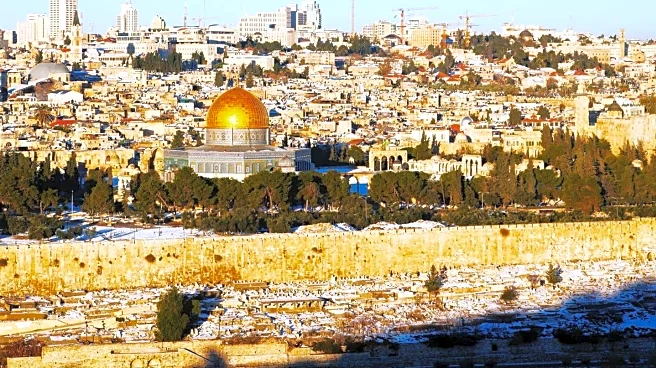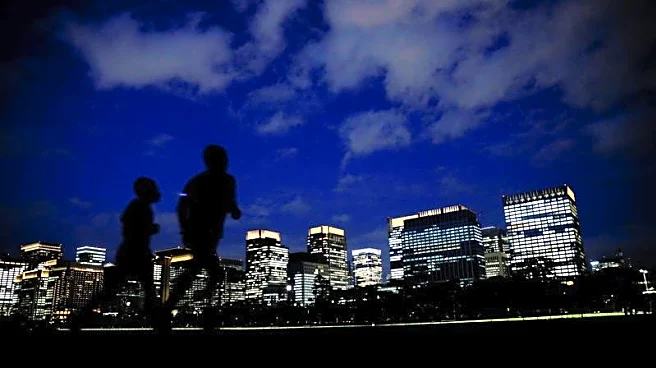What's Happening?
Bethlehem is set to revive its Christmas celebrations after a two-year hiatus due to the Israel-Hamas conflict. The festivities will commence on December 6, 2025, with a Christmas tree lighting ceremony in Manger Square, a site of historical and religious
significance. Bethlehem Mayor Maher Canawati expressed hope and peace in a public statement, emphasizing the city's role as the birthplace of Christ. The return of these celebrations marks a significant moment for the local community and international visitors, as Bethlehem prepares to welcome pilgrims and tourists once again.
Why It's Important?
The resumption of Christmas celebrations in Bethlehem is a symbol of hope and resilience for the region, which has been affected by conflict. It represents a temporary peace and an opportunity for cultural and religious expression. The festivities are expected to attract thousands of visitors, boosting local tourism and economy. For the global Christian community, Bethlehem holds profound significance, and the return of celebrations allows for renewed spiritual engagement. This development may also foster dialogue and understanding among different communities, contributing to broader peace efforts.
What's Next?
As Bethlehem prepares for the influx of visitors, local authorities and businesses will focus on ensuring a safe and welcoming environment. Security measures and logistical arrangements will be crucial to accommodate the expected crowds. The celebrations may also serve as a platform for promoting peace and reconciliation in the region. Observers will be keen to see how the temporary peace agreement holds and whether it can lead to more lasting solutions. The success of these events could influence future diplomatic and cultural initiatives in the area.
Beyond the Headlines
The revival of Christmas celebrations in Bethlehem highlights the complex interplay between religion, politics, and culture in the Middle East. It underscores the importance of cultural heritage in fostering community identity and resilience. The events may also prompt discussions on the role of religious tourism in conflict zones and its potential to bridge divides. Long-term, this development could inspire similar initiatives in other regions affected by conflict, emphasizing the power of cultural and religious events in promoting peace.

















